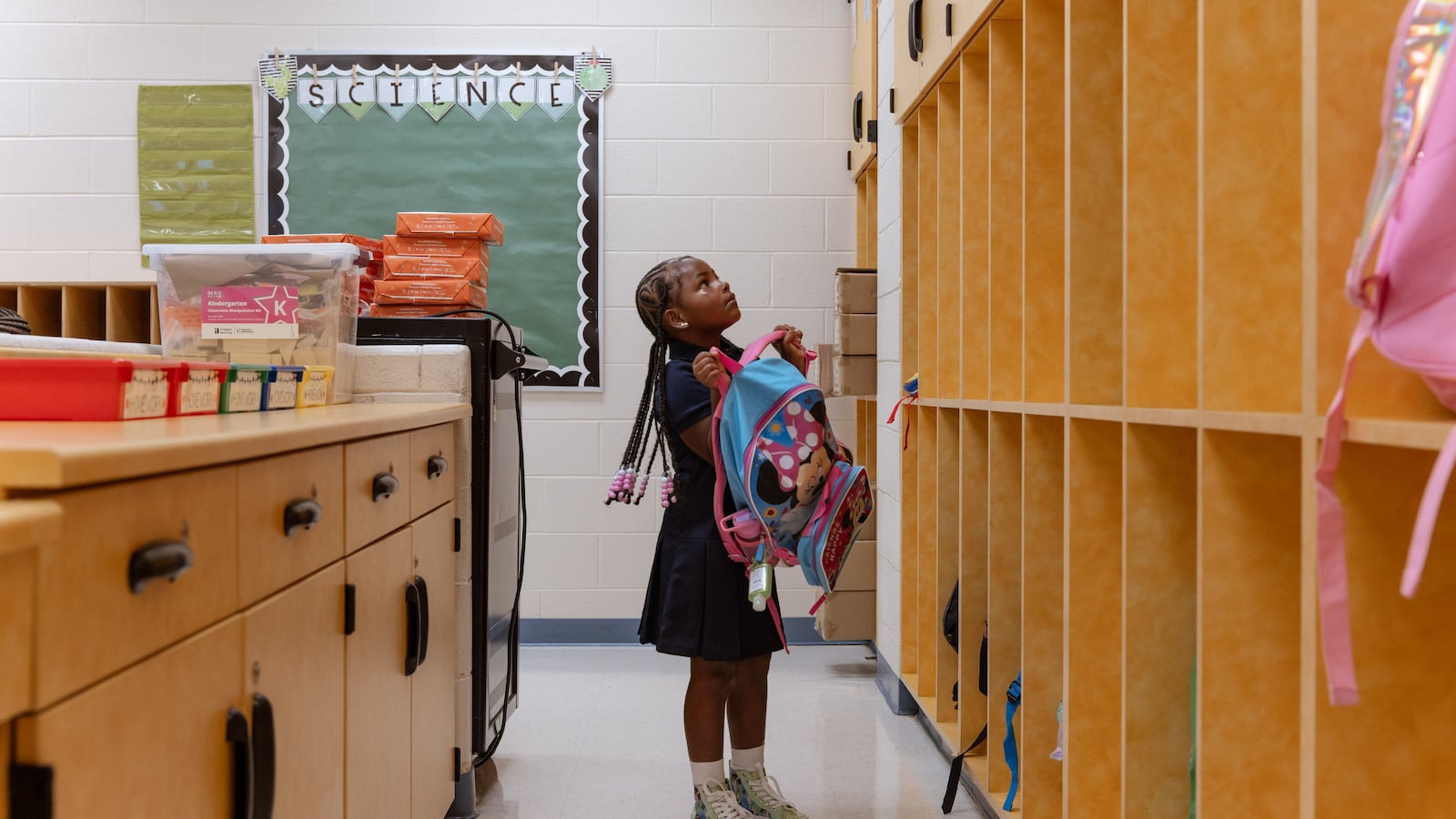Sign up for Chalkbeat Philadelphia’s free newsletter to keep up with the city’s public school system.
Some Philadelphia students are making minor gains in math, English, and science and are catching up to their pre-pandemic scores, according to preliminary standardized test data the district released Thursday.
While the increases are incremental — only a few percentage points in each category — and many students still have not reached proficiency, school leaders said they are hopeful they can keep up the momentum this school year and in the years to come.
According to early data from the 2022-23 Pennsylvania System of School Assessment, or PSSA, students scoring “proficient” in math in grades 3-8, English in grade 3, and science in grades 4 and 8 increased from 2021-22, and students who scored “below basic” declined in those grades and subject levels.
“Students may not have reached … proficiency [yet] but they are moving in the right direction,” Jermaine Dawson, the district’s new deputy superintendent of academic services, told board members on Thursday. “We are catching up and we are closing the achievement gap in those areas.”
Superintendent Tony Watlington cautioned the final data — including a deeper look into disaggregated data sorted by race, gender, and grade level — would be coming in the late fall or early winter.
Board members expressed optimism that Philadelphia students may be making progress.
“Knowing that there are thousands of more students who are now proficient at math … that excites me,” Board President Reginald Streater said.
English Language performance
Third grade students — who have been under the national microscope as districts across the country confront the way they teach reading in their classrooms — were given special attention in the district’s presentation on Thursday.
The percentage of grade 3 students who scored “proficient” or “advanced” on the English PSSA rose from 28.1% in 2021-22 to 31.3% in 2022-23 — an increase of 3.2 percentage points.
The percentage of grade 3 students who scored “below basic” on the PSSA ELA declined during that time period, from 38.2% to 30.3%.
According to the district’s data, the percentage of students in grades 3-8 who scored “proficient” or “advanced” on the English PSSA “remained stable,” dropping 0.3 percentage points from 34.4% in 2021-22 to 34.1% in 2022-23.
The percentage of students in grades 3-8 who scored “below basic” in ELA dropped from 28.2% to 25.4% between 2021-22 and 2022-23 — a decline of 2.8 percentage points.
Watlington said the district has committed to shifting schools towards implementing structured literacy, sometimes known as “the science of reading,” to students in the years to come and are looking to implement new curriculum in that vein next school year.
“We’re not saying that teachers have to take away academic creativity and freedom … but we have to draw the line in the sand and say all kids will have a rigorous and guaranteed viable curriculum,” Watlington said. “The best available in the United States.”
Math performance
Watlington also highlighted the new math curriculum that’s already being rolled out in classrooms citywide this week. He said he hopes those new materials will build on the gains reflected in the PSSA scores.
The percentage of students in grades 3-8 who scored “proficient” or “advanced” on the math PSSA rose from 16.5% in 2021-22 to 20.1% in 2022-23 — up 3.6 percentage points.
In 2022-23, 57.3% of students in grades 3-8 scored “below basic” on the math PSSA, down from 61.7% in 2021-22 — a decrease of 4.4 percentage points.
The percentage of grade 3 students who scored “proficient” or “advanced” on the math PSSA rose from 20.8% in 2021-22 to 26.0% in 2022-23 — a gain of 5.2 percentage points.
In 2022-23, 52.1% of grade 3 students were “below basic” on the math PSSA, down from 58.9% the previous year — 6.8 percentage points.
Science performance
The science portion of the PSSA is only given to students in grades 4 and 8. The district reported from 2021-22 to 2022-23, the percentage of students scoring “proficient” or “advanced” on that test increased from 37.1% to 40.5% — an increase of 3.4 percentage points.
Still a long way to go
To be sure, even with the gains, last year’s scores remain well below levels school officials said they’d like to see.
“We know we’re not where we need to be. We’re not even close to where we know the kids deserve to be,” Board Vice President Mallory Fix-Lopez said.
Tonya Wolford, the district’s chief of evaluation, research, and accountability, told board members it’s important to keep in mind, “students likely are not going from below basic to proficient in one year.” They’ll need more time, resources, and attention to catch up to their peers.
Philadelphia also didn’t see the drastic “drop in performance” during the pandemic from 2018-19 to 2021-22 that districts saw across the country and across the state, Wolford said. “But we’re still not back to pre pandemic levels.”
What are they doing about it
Dawson, Wolford and Watlington all pointed to their efforts to increase student attendance and implement some high-dosage tutoring through a pilot at six to eight schools this year.
Board member Joyce Wilkerson said the board would need to know more details about specific efforts that are working or not in schools across the city, especially as federal covid relief funding comes to an end and dollars may need to be stretched.
“We’re going have to make some budget decisions in the next couple of months, and we’re going to need to know and in fairly specific ways what are we going to fund and what are we going to cut out,” Wilkerson said.
Carly Sitrin is the bureau chief for Chalkbeat Philadelphia. Contact Carly at csitrin@chalkbeat.org.

